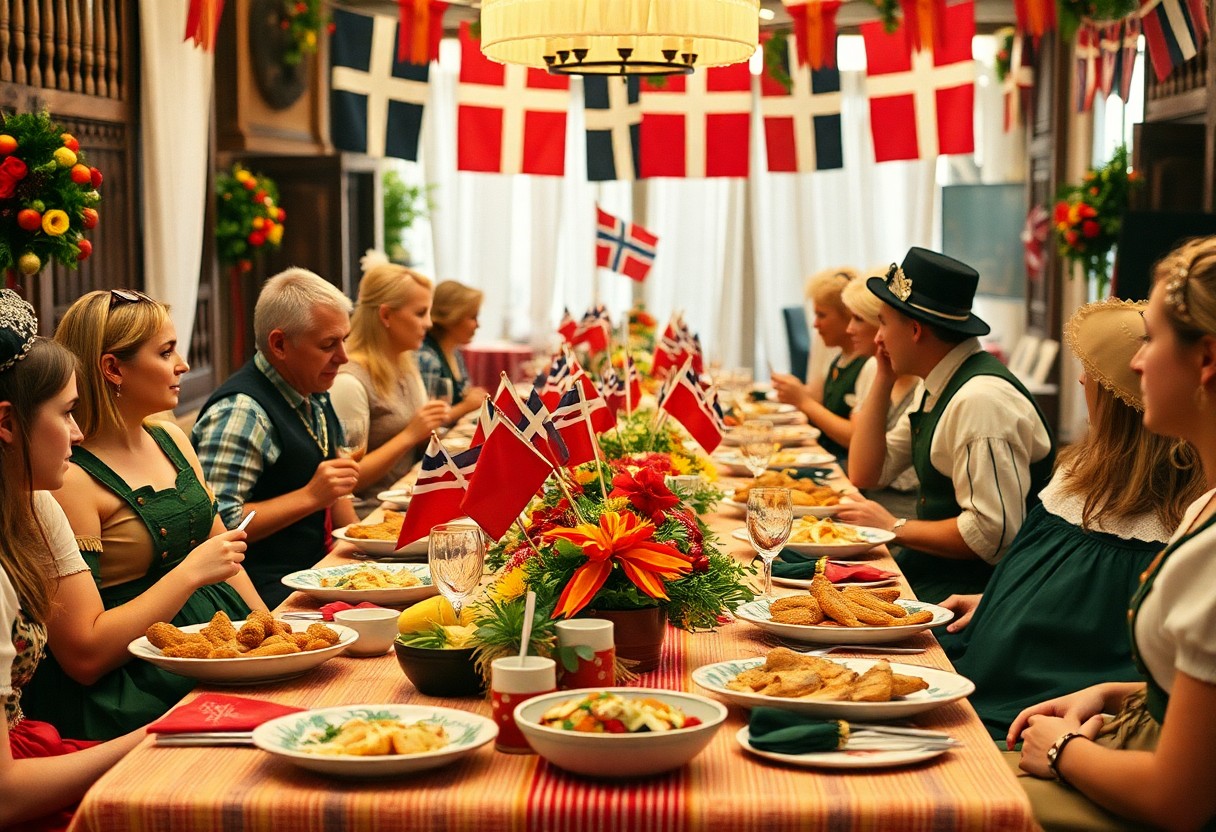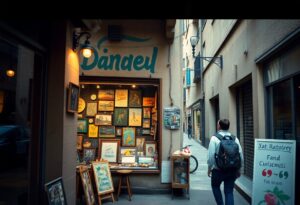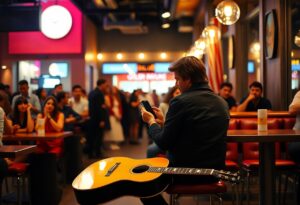Over the years, Danish traditions and customs have woven a rich tapestry of culture that reflects the values and lifestyles of the people. By delving into these unique practices, you can gain a deeper appreciation for Denmark’s sense of community, hygge lifestyle, and cherished celebrations like Midsummer. Understanding these elements not only enhances your travel experience but also enriches your interactions with the locals, allowing you to engage more meaningfully in your surroundings. Embrace the essence of Denmark by exploring its fascinating cultural insights.
Key Takeaways:
- Danish culture places a strong emphasis on “hygge,” a concept that embodies coziness, comfort, and togetherness.
- Community gatherings and celebrations are integral to Danish society, often taking place at local festivals, holidays, and family events.
- Traditions such as Midsummer (Sankthansaften) and Christmas (Jul) are celebrated with unique customs, including bonfires and the Julemanden (Christmas Man).
- The Danish value of “Janteloven,” which promotes humility and discourages individual boasting, influences social interactions.
- Culinary customs include enjoying traditional foods like smørrebrød (open-faced sandwiches) and pastries during festive occasions.
- Danish design and architecture reflect functionality and simplicity, emphasizing aesthetics that foster a sense of well-being.
- Environmental sustainability is a significant aspect of Danish lifestyle, with a focus on renewable energy, recycling, and eco-friendly practices.
Historical Background
For centuries, Denmark’s history has shaped its cultural identity and customs. From its early beginnings as a collection of tribal communities to its rise as a significant power during the Viking Age, understanding this historical background is necessary to appreciating the intricate tapestry of Danish traditions that define modern society. You will find that the evolution of these customs provides fascinating insights into how past events influence contemporary life in Denmark.
Viking Heritage and Influence
Around the 8th to 11th centuries, the Viking Age marked a transformational period for Denmark. Your perception of Danish culture will be enriched by the knowledge that Viking explorers, traders, and warriors laid the foundations for modern Danish identity. Their legacy permeates various aspects of life, from language and artistry to social structures, and you can observe their impact in numerous cultural symbols and celebrations still revered today.
Evolution of Modern Danish Culture
By the 19th century, the rise of nationalism and romanticism catalyzed a renewed interest in Denmark’s heritage. You will notice how the embrace of folk traditions, literature, and arts began to take shape, creating a more cohesive national identity. This period also saw the emergence of the concept of “hygge,” which reflects the Danish pursuit of comfort and well-being, underscoring the importance of community and connection in modern life.
Further exploring the evolution of modern Danish culture, you will see that cultural movements from the 20th century onward fostered a distinct identity characterized by innovation and social welfare. Influences from global trends and movements have also contributed to a rich, diverse cultural landscape. You can appreciate how Denmark prioritizes design, sustainability, and quality of life, which reflect in daily practices and public policies. Understanding these transformations will deepen your engagement with contemporary Danish customs and traditions, enhancing your experience while in Denmark.
Danish Social Values
Some of the most prominent Danish social values include a strong sense of community, equality, and respect for nature. These values foster a society where cooperation is valued over competition, providing a warm and inclusive environment. Understanding these principles is necessary for you to integrate into Danish culture, as they shape everyday interactions and influence personal relationships.
Hygge and Well-being
Beside being a word, hygge represents a mindset focused on comfort and enjoyment in simple pleasures. This concept is deeply rooted in Danish culture and contributes to the overall well-being of individuals. Embracing hygge in your daily life encourages you to cultivate connections with friends and family, create cozy spaces, and appreciate quiet moments, ultimately leading to greater life satisfaction.
Equality and Trust in Society
For the Danes, equality is not just a value but a way of life that permeates every aspect of society. This principle fosters a sense of trust among individuals, encouraging open communication and collaboration. You will find that this focus on equality makes it easier to engage with others, as everyone is seen as having equal worth, regardless of their background.
Also, this commitment to equality often translates into a high level of social trust, which is necessary for maintaining harmony in the community. In Denmark, you’ll notice that people tend to trust one another and feel comfortable relying on their fellow citizens. This trust encourages collective problem-solving and reinforces positive societal behaviors. As a result, you may experience a profound sense of belonging and support—a characteristic hallmark of Danish culture.
Celebrations and Festivals
Your experience of Danish culture will undoubtedly be enriched by its vibrant celebrations and festivals. From midsummer bonfires to the joyous Christmas season, these events showcase the warmth and togetherness that defines Danish traditions. Engaging in these festive occasions offers you a glimpse into the heart of Denmark, where community spirit and time-honored customs come alive in spectacular fashion.
Traditional Holiday Customs
Any visit to Denmark during its holiday season introduces you to unique customs and practices. Danes emphasize family gatherings and communal meals, often featuring traditional dishes like roast pork and glogg. Engaging in these traditions enhances your understanding of the Danish ethos, where celebration centers around love, hospitality, and shared joy.
Seasonal Celebrations
Celebrations in Denmark are marked by the changing seasons, providing a unique lens through which to experience the culture. Festivals such as Fastelavn in spring, where children dress up and participate in fun games, contrast beautifully with the solemnity of Advent in winter. Each celebration invites you to partake in local festivities, enriching your connection to the Danish way of life.
Consequently, by engaging in these seasonal festivities, you’ll discover that they are significantly more than mere events—they encapsulate values of togetherness and reflection. The lively atmosphere during midsummer and the cozy gatherings in December serve as poignant reminders of the importance placed on community relationships. Participating in these celebrations allows you to forge deeper connections with locals, enhancing your overall experience in Denmark.
Family Life and Traditions
Once again, the importance of family is deeply embedded in Danish culture. Danes prioritize family connections, valuing strong bonds and shared experiences. These connections are central to social life and daily routines, where gatherings and traditions foster a sense of belonging and unity. Family structures are often nuclear, but there’s a strong network of support from extended family, creating a nurturing environment for everyone involved.
Home and Daily Routines
After a busy day, you’ll find that Danish families often enjoy simple togetherness during evening meals, where homemade food is lovingly shared. The daily routine emphasizes work-life balance, allowing time for each family member to engage in their hobbies while ensuring quality time spent together in a warm and welcoming home atmosphere.
Family Gatherings and Customs
Traditions play a significant role in family gatherings, whether it is celebrating birthdays, holidays, or simply spending time together. Danish families often engage in seasonal festivities and rituals that strengthen their bonds. You may find that during special occasions such as Christmas and Easter, families come together to create meaningful memories and share traditional dishes that have been passed down through generations. This sense of continuity and celebration enhances your connection to your roots and inspires warmth among family members.
Family gatherings are a highlight of Danish life, serving as opportunities to connect, share stories, and worship family heritage. Through joint activities and cherished customs, you create lasting memories that are more than just a celebration; they nurture lifelong relationships. Whether it’s enjoying a typical Danish feast of smørrebrød or navigating the exciting rituals during fastelavn, these occasions provide a chance to bond with loved ones, reinforce values, and instill cultural pride within your family.
Food Culture
Despite the modern influences, traditional Danish food culture remains a significant part of everyday life in Denmark. This culture emphasizes simplicity, seasonality, and local ingredients, making for hearty, wholesome meals that reflect the region’s agricultural heritage. Danish meals often provide an opportunity for family and friends to gather, showcasing the importance of communal dining in fostering connections and sharing stories.
Traditional Danish Cuisine
Along with its emphasis on fresh ingredients, traditional Danish cuisine features iconic dishes such as smørrebrød (open-faced sandwiches) and frikadeller (meatballs). Ingredients like rye bread, pork, and seasonal vegetables play a prominent role, representing Denmark’s agricultural history. Furthermore, meals are frequently accompanied by locally brewed beers or aquavit, solidifying the connection to the nation’s culinary roots.
Dining Etiquette and Social Customs
An vital aspect of Danish culture is the importance placed on dining etiquette and social customs. You will find that Danes appreciate punctuality, so arriving on time is expected. In addition, it’s common to wait for the host to make a toast before starting your meal.
And during meals, you should maintain a relaxed atmosphere, as lengthy, engaging conversations are valued. It’s polite to keep your hands visible on the table (but not your elbows) and to pass food around. Offering a thank you to the host for their hospitality is considered respectful after enjoying the meal. Be mindful of your table manners while embracing the social aspects of Danish dining culture, as your behavior reflects your respect for the host and their traditions.
Social Norms and Etiquette
Now, understanding Danish social norms and etiquette can greatly enhance your experience in Denmark. Danes value equality and directness, so you’ll find a casual atmosphere in social settings, where formal titles and hierarchy are often downplayed. Punctuality is important, and being late may be seen as disrespectful. Embracing their customs, such as taking off your shoes when entering a home, can help you forge positive connections.
Communication Style
To effectively communicate with Danes, you should adopt a straightforward approach. They appreciate honesty and clarity, often preferring direct conversation over small talk. Body language is typically relaxed and open, so maintain eye contact and a friendly demeanor to foster rapport.
Business and Social Interactions
About your interactions in Denmark, it’s important to approach both business and social settings with a sense of informality combined with respect. Danes highly value trust and transparency, so being direct and genuine will serve you well. In meetings, it is common for everyone to contribute their thoughts; thus, expressing your opinions openly is encouraged.
Style your interactions by being open, honest, and empathetic. In business meetings, it’s beneficial to establish a relationship before plunging into contracts or negotiations, as trust is central to Danish culture. Also, trying to engage in their informal style while maintaining a level of professionalism is key. Avoid aggressive tactics, as you may come off as overly assertive, which is often frowned upon. Balancing warmth with directness in your conversations will promote a positive experience.
To wrap up
Presently, understanding Danish traditions and customs enhances your appreciation of Denmark’s rich cultural tapestry. By immersing yourself in local practices, from the significance of hygge to the importance of equality and community, you can deepen your connection with the Danish way of life. Engaging with these insights not only enriches your personal experiences but also fosters respectful interactions with locals, allowing you to navigate social settings with ease and confidence. Embrace these cultural perspectives as a key element of your journey in Denmark.
FAQ
Q: What are some common Danish traditions during holidays?
A: Danish holidays are rich with traditions. For instance, during Christmas (Jul), it is common to decorate a Christmas tree and enjoy a festive meal that includes roast pork, duck, or goose. Another tradition is the exchange of gifts on the evening of December 24th. For Easter, Danes often create decorative eggs and participate in egg hunts. Midsummer (Sankthansaften) is celebrated by lighting bonfires and singing songs. Each holiday has unique customs that reflect Danish culture and values.
Q: How do Danes typically celebrate birthdays?
A: Birthdays in Denmark are often marked with family gatherings and good food. It is customary to have a birthday cake, frequently featuring layers and whipped cream. A popular tradition is singing “Happy Birthday” and allowing guests to make a wish before blowing out the candles. Additionally, it is common for the birthday person to provide a treat or meal for their guests, reflecting the Danish value of generosity.
Q: What are some etiquette tips to keep in mind when visiting a Danish home?
A: When visiting a Danish home, it is polite to arrive on time as punctuality is valued. Bringing a small gift, such as flowers or chocolate, is a thoughtful gesture. Once inside, friends might remove their shoes, especially in colder months. In social settings, it is encouraged to engage in casual conversation, respecting personal space. Always remember to wait for a toast or acknowledgment before taking the first sip of your drink.
Q: What role does hygge play in Danish culture?
A: Hygge is a significant aspect of Danish culture, representing a sense of coziness, contentment, and well-being. It encompasses creating a warm and inviting atmosphere, often through lighting candles, sharing meals with loved ones, or enjoying peaceful moments at home. Danes prioritize quality time with family and friends, which contributes to their overall happiness. Understanding hygge helps outsiders appreciate the Danish approach to living and socializing.
Q: How do Danes view relationships and social interactions?
A: Danes typically value authenticity and equality in relationships. Friendships often develop gradually, with an emphasis on honesty and openness. Formality is less observed, allowing social interactions to be more relaxed. It is common to address people by their first names, even in professional settings. Danes also promote a strong sense of community, often participating in local events and gatherings to foster connections among neighbors.









